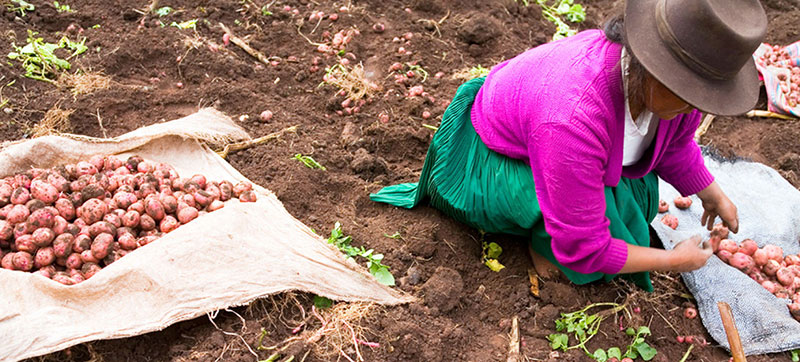 Pandemic
Pandemic New York: COVID-19 has set back progress towards the Sustainable Development Goals (SDGs), undermining decades of development efforts, according to a new report by the UN Food and Agriculture Organization (FAO).
"It's an alarming picture, in which progress on many SDG targets has been reversed, with a significant impact on all aspects of sustainable development and making the achievement of the 2030 Agenda even more challenging," said FAO Chief Statistician, Pietro Gennari.
The analysis, Tracking progress on food and agriculture SDG-related indicators, focuses on eight of the SDGs, which were adopted at a UN Summit in New York in 2015.
Main findings
According to the report, the COVID-19 pandemic might have pushed an additional 83 to 132 million people into chronic hunger in 2020, making the target of ending hunger even more distant.
Around 14 percent of all food is lost along the supply chain, before it even reaches the consumer, which FAO considers “an unacceptably high proportion”. Progress has also faltered towards maintaining plant and animal genetic diversity for food and agriculture.
Agricultural systems bear the brunt of economic losses due to disasters, small-scale food producers remain disadvantaged, and food price volatility has also increased, due to the constraints placed by the pandemic and lockdowns.
The report also focuses on gender, finding that women producers in developing countries earn less than men even when more productive; gender inequalities in land rights are pervasive; and discriminatory laws and customs remain obstacles to women's tenure rights.
Lastly, water stress remains alarmingly high in many regions, threatening progress towards sustainable development.
Progress and solutions
FAO also points to several areas in which progress is being made.
The UN agency highlights measures against illegal, unreported and unregulated fishing, sustainable forest management, elimination of agricultural export subsidies, investment in agricultural productivity in developing countries, and duty-free access for developing and Least Developed Countries (LDCs).
The new report coincides with this week's UN Food Systems Summit, which aims to raise global awareness and spur actions to transform food systems, eradicate hunger, reduce diet-related diseases and heal the planet.
FAO is asking to scale up investment in agriculture, more access to new technologies, credit services and information resources for farmers and support small-scale food producers.
The agency also supports the conservation of plant and animal genetic resources, measures to counter food price volatility, and prevent potentially hazardous events from becoming full-blown disasters.
It also calls for more action to use water efficiently, better interventions to reduce food losses, more protection of ecosystems, progress on the legal and practical aspects of women's land rights and the sustainability of global fisheries.
Lastly, the report makes an urgent call for more and better data.
"As the COVID-19 pandemic continues to unfold, and the world moves further off track in meeting the 2030 SDG deadline, timely and high-quality data are more essential than ever," Mr. Gennari said.
Support Our Journalism
We cannot do without you.. your contribution supports unbiased journalism
IBNS is not driven by any ism- not wokeism, not racism, not skewed secularism, not hyper right-wing or left liberal ideals, nor by any hardline religious beliefs or hyper nationalism. We want to serve you good old objective news, as they are. We do not judge or preach. We let people decide for themselves. We only try to present factual and well-sourced news.







